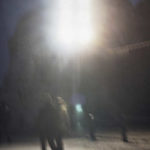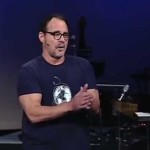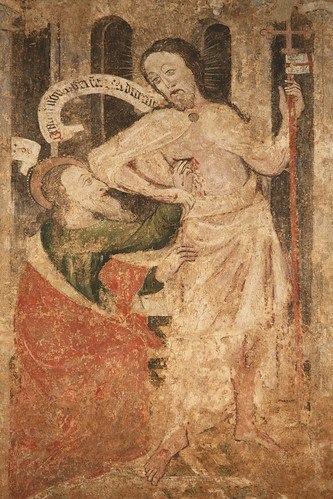We run our website the way we wished the whole internet worked: we provide high quality original content with no ads. We are funded solely by your direct support. Please consider supporting this project.
The God Who Embraces Our Doubt
Lawrence OP via Compfight
Zack Hunt over at The American Jesus posted some of his thoughts on doubt, and it seemed fitting on this week before the Doubt, Faith & the Idol of Certainty conference to share what he had to say. We’re thinking he must have stumbled on Greg’s book or maybe God is doing something larger and more beautiful than we can imagine. Maybe God is inviting us to get real, to speak out loud all of the hidden questions and doubt, to bring them out into the light of day. The light is where God can speak and heal and love us.
From Zack’s blog:
The real problem we have in the church is not with doubt, but with our inability to make space for those who do have doubts about their faith, who are going through the exact same struggle the people of God have endured for as long as their have been a people of God.
Too often we don’t do a very good job of giving our brothers and sisters the freedom ask the question they need to ask and share the pain that’s ripping their faith apart. Too often we treat doubt as if it were some kind of sin or disease and doubters as if they were lepers to be shunned. As if any display of weakness will reveal the church’s imperfections to the world and anger God.
Contrary to the God of the Bible who listens to our questions and embraces our doubt, who even when we shout to the heavens “My God, my God why have you forsaken me” does not pour out his wrath, but showers us with love; contrary to the very God we claim to worship, we as a church too often dismiss doubts as “just a phase,” dishonor heartfelt questions by telling people “just to believe,” and compound the pain of the suffering by blaming those who suffer for “not having enough faith.”
Category: General
Tags: Bible, Doubt, Faith, God, Honesty, Jesus, The American Jesus, Upside-Down Kingdom, Zack Hunt
Related Reading

Are You a Church Misfit?
Romain Guy via Compfight Here’s a lovely reflection from Rachel Held Evans on the experience of finding that your questions are unwelcome in church. Evans is bumping up against this material as she reads Barbara Kingsolver’s Flight Behavior. I suspect this kind of experience is much more common that we’d like to admit. Can you…

The Holy Alternative
God is holy because he’s utterly “other” and distinct from anything in the created world. Certain objects are called holy because they’re set apart from common objects, having been consecrated to God for a special purpose. And God’s people are called to be holy by virtue of the radically different kind of life we live.…

Sermon Clip: You Are Not The Tree
What do the Gospels, Christmas Trees, and Eastern Spirituality have to do with one another? Greg Boyd explains in this weeks sermon clip. In the full sermon, we explore the Gnostics belief of the church in Colossae and how those relate to the New Spirituality movements rooted in Eastern thought of our day. We explore…

Participating in the Divine Nature (Love)
When God created the world, it obviously wasn’t to finally have someone to love, for God already had this, within himself. Rather God created the world to express the love he is and invite others in on this love. This purpose is most beautifully expressed in Jesus’ prayer in John 17. Jesus prays to his…

2 Ways We Misinterpret God’s Promises
In the church where I first found Christ, we used to sing a hymn called “Standing on the Promises of God.” The hymn itself isn’t bad, for it focuses entirely on our relationship with God. But in many cases, I’ve found this phrase applied in ways that express, and reinforce, a magical kind of faith.…

Was Jesus Unloving Towards the Pharisees?
Some claim that Jesus spoke to religious leaders in ways that did not reflect the love of the cross. In his climatic encounter with the Pharisees in Matthew 23, Jesus’ words were undeniably harsh. He calls the Pharisees “hypocrites,” “blind guides,” “blind fools,” “snakes” and “a brood of vipers” (Mt 23:13, 15, 16,17, 19, 23,…

